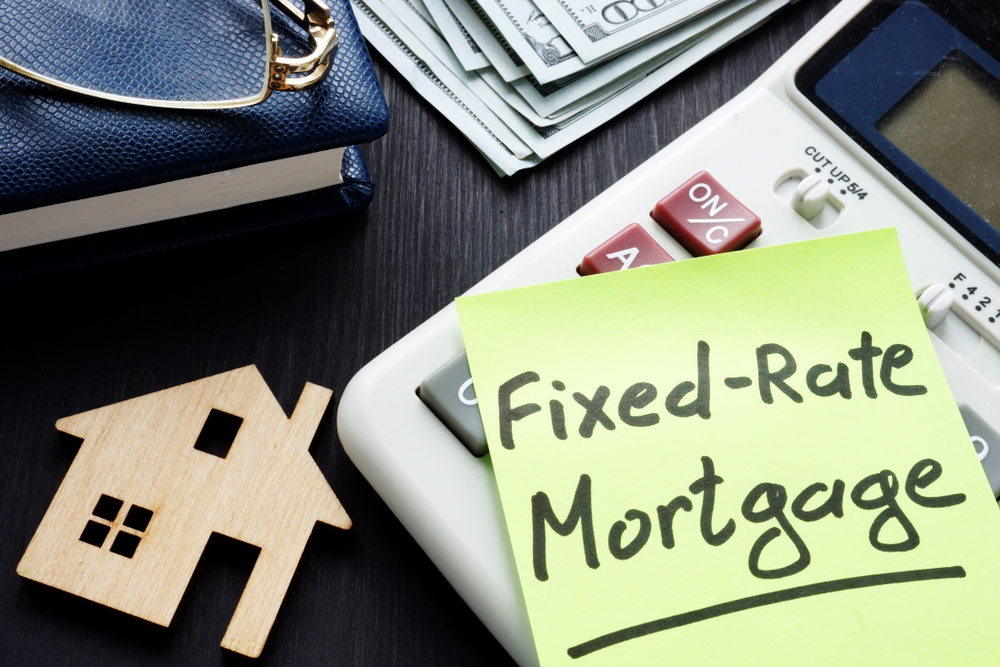More than one million households will see mortgage deals end this year, meaning a possible jump in their monthly repayments.
Interest rates have soared since December 2021, when the base rate sat at 0.1% and you could find a two-year fixed-rate mortgage deal for just 0.89%.
Now, the base rate is at 4.25% and the average two-year fixed rate is over 5.3%, while a five-year mortgage deal will cost you 5%. If you secured a fixed mortgage before 2022, you are likely to end up paying a higher rate when your deal ends.
1. Check when your current mortgage deal ends
The first step to take is to ensure that you know when and to what extent your circumstances will change. Check your mortgage contract to find out exactly how long you have before, if you take no action, you are automatically moved over to your lender’s standard variable rate.
Make sure you are aware of how much you currently pay each month, which will help you work out how much extra you need to budget for when moving to another deal. Check what the outstanding mortgage balance will be at the end of your current deal, as you will need this information when applying for a new one.
2. You may be able to lock in a new mortgage early
Depending on the lender you go with for your new deal, you may be able to lock in a new rate three to six months in advance. When your current fixed rate mortgage ends, you will automatically be moved onto the rate you have pre-selected. This means you will be protected in the event that interest rates increase in the meantime.
However, the opposite could happen and rates could fall before your current deal ends. As long as the new one hasn’t already begun, some mortgage providers will allow you to cancel your fixed rate mortgage deal without paying a fee. This means you can find another, cheaper deal.
“Some lenders don’t allow a shift once an offer has been accepted, whereas others may allow a move to another rate if things change,” says broker David Hollingworth of L&C Mortgages. It’s therefore important to check with the lender whether or not they will be flexible on this should rates fall after you have accepted the offer.
If they will be, locking into a rate in advance can be a win-win. Should the cost of borrowing increase across the market, you are protected. If rates go down, you can cancel and jump ship.
It’s worth bearing in mind that if you do decide to cancel a deal and go with another lender, you will have to undergo affordability checks all over again. This may be an issue if you don’t have a good credit history.
What are the current mortgage rates and will they go down?
There’s no way to be certain about the future of mortgage rates, but past trends can offer some clues.
Mortgage rates reached their highest point in over a decade in October 2022, when the average two-year fix stood at 6.55%, up from just 2.25% a year prior.
Since then, rates have fallen: the average two-year fixed deal now sits at 5.32%, according to Moneyfacts. The average five-year deal is at 5%.
However, mortgage rates increased in the first place due to rises in the base interest rate implemented by the Bank of England in order to combat rapidly mounting inflation. Rate increases were fueled even further by the market panic arising from the September 2022 mini-budget.
While a lot of that panic has since subsided, inflation remains very high – meaning future increases in the base rate can’t be ruled out. This could in turn drive up mortgage rates again.
3. Speak to a mortgage broker and compare your options
Consulting a broker could be a good idea when hunting for a new mortgage. In exchange for a fee, you will have access to their expertise, contacts, and, often, exclusive deals that you wouldn’t be able to find elsewhere.
Brokers are able to tailor their advice according to your particular circumstances and talk through which options are likely to be right for you.
It is also worth speaking to your current mortgage lender and seeing what kind of rate you could get by conducting a product transfer. This is when you simply switch over to a new deal with the same lender when your existing one ends.
This isn’t the same as automatically shifting onto their SVR, which will normally be one of the pricier options available.
Some lenders offer existing mortgage customers exclusive rates that aren’t available to the general public or sometimes even brokers, so it’s always worth contacting your lender to find out.
When choosing a new mortgage, you will also need to decide whether you want to pay a fixed rate of interest for a certain period, or a variable or tracker rate that can move up and down.
Find out about the different types of mortgage, and how to pick the right one for you. If you are leaning towards a fix, see the pros and cons of a long-term mortgage deal.
To get an idea of the current mortgage rates available to somebody in your circumstances, try this mortgage comparison tool.
4. Budget for the upcoming increase in repayments
It’s important to work out exactly how much your mortgage repayments will increase by when your new deal starts.
For households with some room for manoeuvre in their finances, the effect of a higher mortgage rate may not be that dramatic; it may just be a case of saving or investing less money each month.
However, for other mortgage customers who are grappling with significantly more stringent budgets, even the smallest of rises in living expenses could derail them unless they find ways to balance their income and outgoings.
The ONS has reported that households coming off fixed deals in 2023 will see their repayments go up by an average of £250. Being prepared for this could spare you a nasty financial shock if, for example, you can identify areas where you could make spending cuts.
Having a strict budget is key to navigating choppy financial waters – see our tips for creating a budget.
Finding ways to increase the money you have coming in could also help lessen the effects of a mortgage shock. This could take the form of a side hustle, or even asking for a pay rise at work. See all of our tips for boosting your income.
5. Overpay your mortgage if you can afford to
Should you have the luxury of a mortgage rate that is well below the current market average, it’s worth taking advantage of it, if you can, to clear as much of your remaining balance as possible.
This way, when you switch over to your next deal, you will have less to repay and a lower amount on which to fork out steeper interest payments.
Most lenders let you overpay your mortgage by 10% of the remaining balance each year penalty-free. However, different lenders have different policies on reducing your balance this way, and, as the associated penalties can be up to about 5% of the amount overpaid, going over their limit is generally not worth it.







